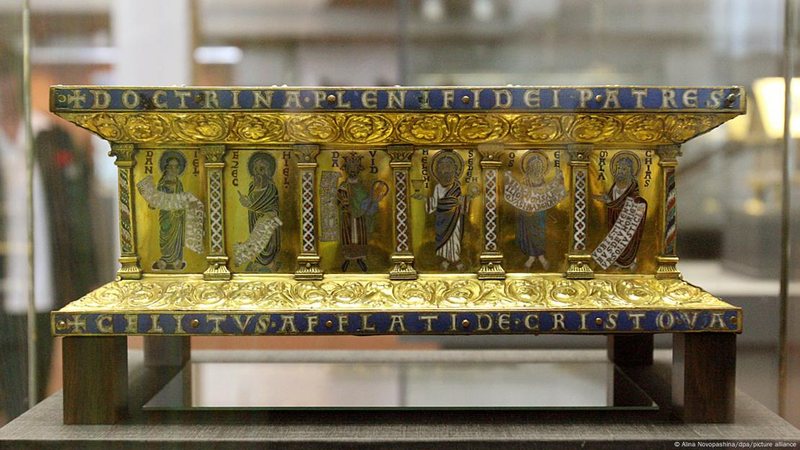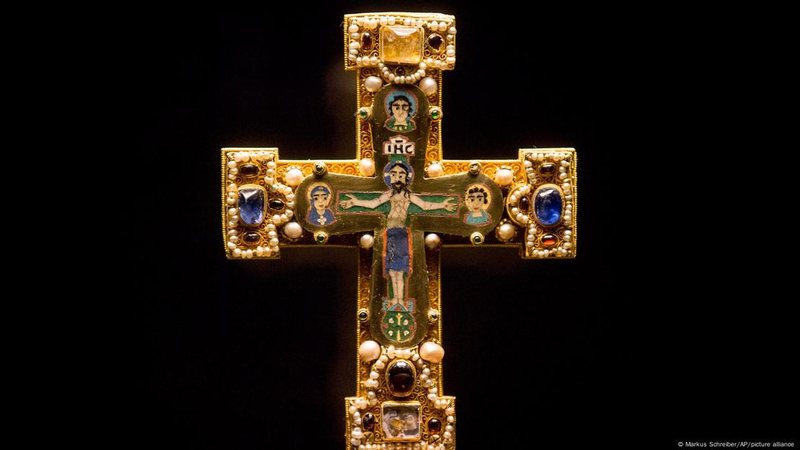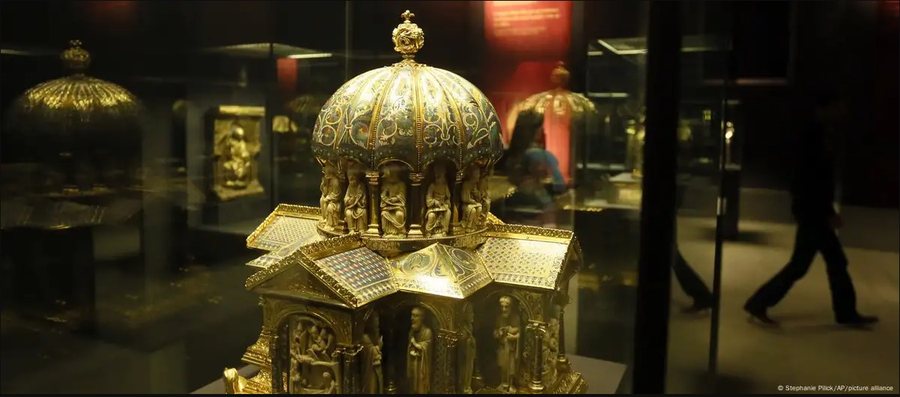
The case appears to have been reopened, as leaked documents are raising suspicions of Nazi art theft. Will it be returned to its Jewish heirs?
Reliquaries, crosses, figures of saints, finely crafted in gold and silver, adorned with pearls, rock crystal and ivory: the Welfen treasure is undoubtedly one of the most important medieval church treasures. It includes 44 masterpieces of medieval church art. The Welfen are the oldest princely house in Europe, the family had amassed numerous treasures. Their value: hundreds of millions of euros. The precious works can currently be visited in the Picture Gallery in Berlin still - because whether the rightful owner is the Prussian Cultural Heritage Foundation (SPK) that maintains them, or the treasure is art looted by the Nazis, this question is still open.
For a long time the case seemed to have been cleared up: during the Nazi era the Welfen Treasure was sold to the Prussian state by a consortium of Jewish art dealers from Frankfurt, who had bought it from the princely family in 1929. After World War II it passed into the ownership of the Prussian Cultural Heritage Foundation. Ten years ago the Advisory Commission ("Limbach") ruled that the Welfen Treasure was not looted art. Apparently the expert forum found no evidence that the sale had been forced by the Nazis. A lawsuit by the descendants in the American courts for the return of the Welfen Treasure was rejected in 2023.
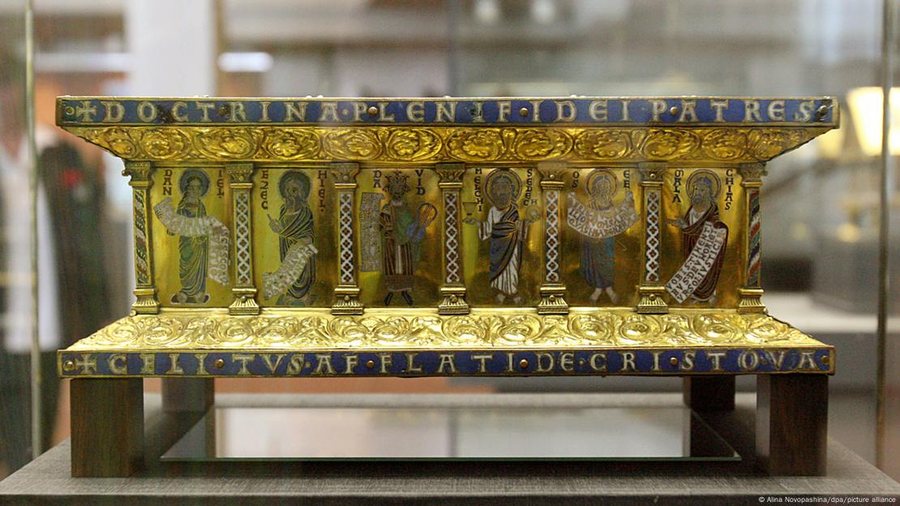
Legal advice for the Welfen Treasury
Since 2008, Jewish heirs have been claiming restitution. A legal battle has begun. The Prussian foundation estimated the value of the treasure at 100 million euros, while the heirs who sued estimated it at 260 million euros. Documents discovered in the State Archives of Hesse in 2022 raised doubts that the sale of the Welpen Treasure was not as voluntary as previously assumed.
Forced sale?
According to these documents, the Jewish co-owner of the Welpen Treasury, Alice Koch, who owned a quarter of the treasury – was paid 1,115,000 Reichsmarks in 1935, but which was immediately taken away as a "removal tax from the Reich" (from Nazi Germany).
"The Reich exit tax was an instrument to exploit the assets of Jewish fellow citizens who wanted to leave the country," Berlin victims' lawyer Jörg Roßbach told broadcaster RBB. "Without paying the Reich exit tax, no tax clearance certificate was issued, without the clearance certificate there was no exit permit."
A previously unknown document shows: Alice Koch received such a notice for the tax on leaving the Reich - over one million Reichsmarks. Without it, she would not have been able to escape Nazi Germany. Four days after the tax notice, Alice Koch paid, received a clearance certificate from the tax office and was able to leave the country.
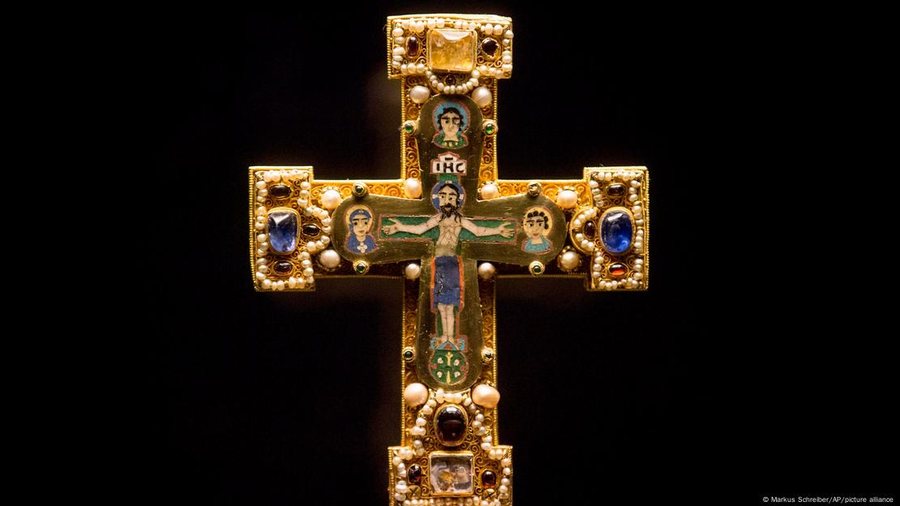
Will the case be reopened?
Is this document a turning point in the Welfen treasure case? Not quite: The Art Theft Commission can only reopen the case if the Prussian Cultural Heritage Foundation agrees. After months of hesitation, it seems ready to do so. "The SPK would agree to take up the case," a statement said, "as long as the requests have been clarified in accordance with the rules of procedure." To do this, it must contact the commission and the lawyers of Alice Koch's descendants again "to clarify the questions that are still open." The chairman of the commission, lawyer Hans-Jürgen Papier, on the other hand, wants to speed up the matter: "The SPK is (...) obliged to accept the commission's request immediately. The consideration of admissibility is a matter for the commission alone."
Although Germany does not yet have a restitution law, the country adheres to the principles of the 1998 Washington Declaration. On the basis of this, "fair and orderly solutions" must be found for art looted by the Nazis. This has so far been the task of the so-called Limbach Commission, named after its first chair, the late constitutional court judge Jutta Limbach. In future, disputed issues will be decided by arbitration courts, which, unlike before, can also be called upon by one of the parties to the dispute. /DW/ (A2 Televizion)

